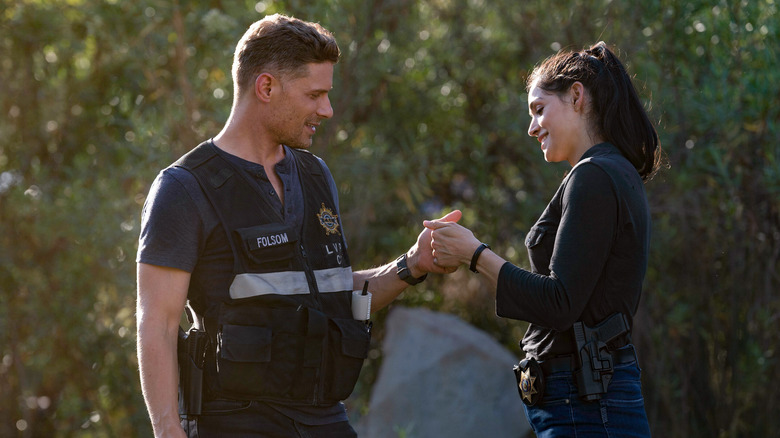CSI's Ann Donahue Claims Postmodernism Keeps Viewers Tuning Into The Franchise
Over the course of its 15-season-long run, "CSI: Crime Scene Investigation" managed to continuously pull in tens of millions of viewers eager to solve murder mysteries alongside their favorite crime scene investigators. While the series' viewership dwindled in the later seasons, "CSI" remained relevant enough to warrant four spin-offs and "CSI: Vegas," a follow-up to the original series, released in 2021. "Vegas'" Season 2 even marked the return of Marg Helgenberger, who reprised her role as the fan-favorite investigator Catherine Willows.
There are many theories that have tried to pinpoint a reason for the show's massive popularity. After all, there are dozens of police procedural series out there, and yet, very few of them have proven capable of maintaining the same longevity as "CSI." Some consider it so impactful because it was the first show that focused on forensics as a way of solving crimes, as well as due to the shock value provided by the show's villains on a regular basis (via The Washington Post). Ann Donahue, a lead writer on "CSI," has a different opinion on her brainchild's rise to fame.
Donahue said that CSI gives people closure
In a world where so many things are left unexplained or unresolved, this kind of uncertainty often also seeps into the world of pop culture. Many movies and TV shows are left open to viewers' interpretation, leaving lots of people unsatisfied with the final outcome. This isn't the case with "CSI," a show with self-contained episodes that always have a clear resolution at the end. According to Ann Donahue, this is one of the main reasons why "Crime Scene Investigation" became one of the most popular television shows in the world.
In a 2001 interview, Donahue explained why people resonated with "CSI" so much, despite the fact that the series was not heavily promoted at all during its early seasons. "The show is, in some ways, postmodernist, it provides a definitive and final answer, and people crave that," she told The New York Times. She went on to explain that other shows in the same genre stick to the formula of detailing why a criminal did what they did. ”The audience loves the finality of this show," Donahue added. "We deal with the evidence. We say who did it and how they did it. And people love that closure.”

